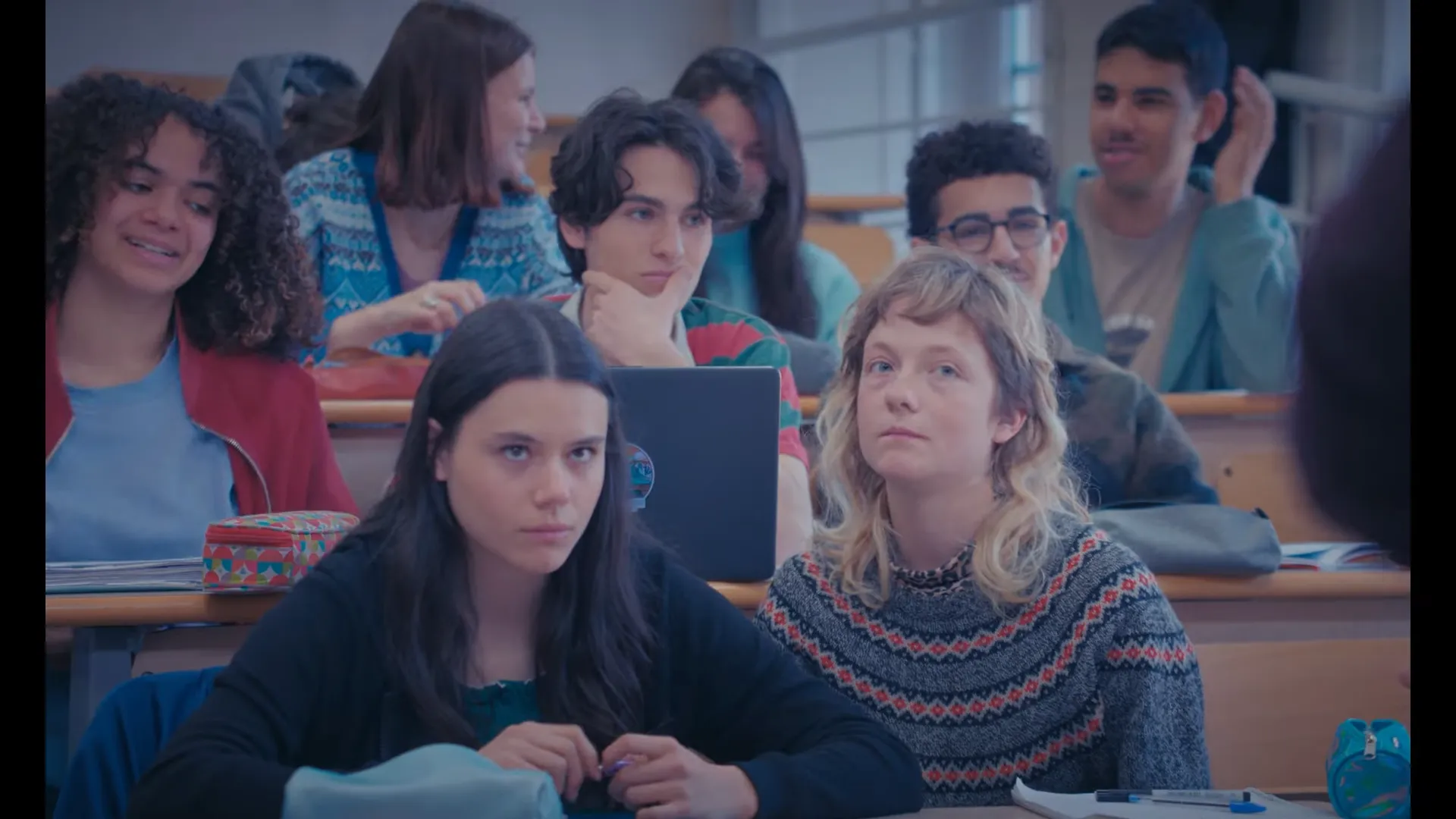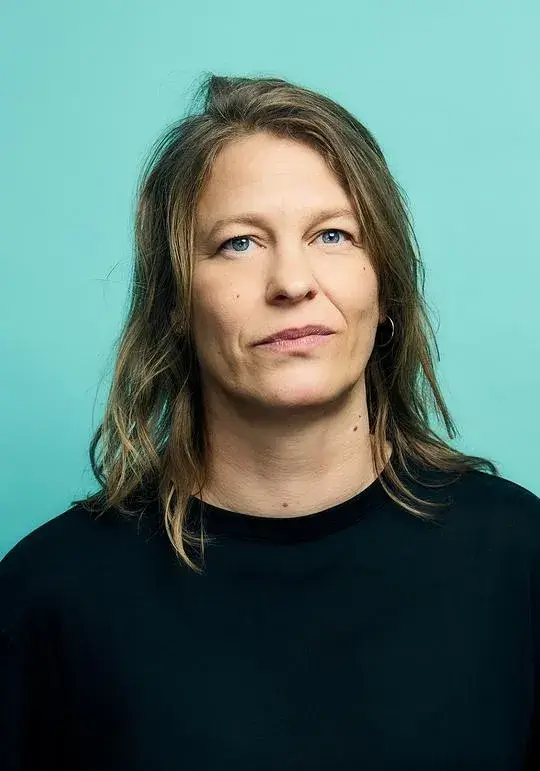Langue étrangère is a delicate yet politically charged queer drama that follows two teenage girls from different countries who meet through a school exchange program. Set between Leipzig and Strasbourg, the film explores the emotional landscape of adolescence through language, lies, love, and activism.

This multilingual lesbian film subtly captures how intimacy can bloom even amid cultural clashes and generational trauma. Nominated for the Golden Bear at the 74th Berlin International Film Festival, it offers a raw yet poetic portrait of young sapphic identity in contemporary Europe.
Langue étrangère Official Trailer
17-year-old Fanny, a reserved French student, travels to Leipzig, Germany as part of a school exchange program. She’s paired with Lena, a sharp and politically engaged teen who initially shows little interest in playing host. Language is a barrier between them, but so is Lena’s emotional armor. Gradually, as Fanny opens up about her troubles—including school bullying and suicidal thoughts—the girls begin to understand each other in ways words alone can’t capture.

The story takes a turn when Lena travels to France for the second half of the exchange. She begins to suspect that Fanny’s stories—about a pregnant friend, a sister who protests in black bloc movements, even a peanut allergy—might all be fabricated. What’s worse: she’s already fallen in love with Fanny.
Langue étrangère Cast
Charactor

A politically passionate teen from Leipzig, Lena is idealistic, fierce, and deeply principled.
Josefa Heinsius
This is Josefa Heinsius’ screen debut, and she delivers an emotionally complex performance filled with vulnerability and fire. Her portrayal of Lena—who grapples with Germany’s historical legacy and her place in the world—is a standout of the film.

A French-Arab girl who crafts an elaborate web of lies to gain affection, masking deep insecurity and trauma.
Lilith Grasmug
Lilith Grasmug is equally captivating in her debut role, capturing Fanny’s fragility and desperation with subtle restraint. Her character’s psychological complexity is portrayed with quiet heartbreak.
Director

Claire Burger
Claire Burger is a French filmmaker known for her emotionally grounded narratives centered around women and family dynamics. A graduate of La Fémis, she co-directed her first feature Party Girl (2014), which won the Caméra d'Or at Cannes. Her solo debut, C'est ça l'amour (Real Love, 2018), received acclaim at Venice Days. With Langue étrangère, Burger turns her lens toward youth identity and cross-cultural tension, building a nuanced and urgent queer political coming-of-age story that speaks to a new generation of Europeans. Her own upbringing near the Franco-German border deeply informs the authenticity of the film.
MOVIE HIGHLIGHT
Multilingual Lesbian Narrative
Told through French, German, and English, the film portrays language not only as a communication barrier but as a metaphor for emotional distance and desire.
Political Meets Personal
Through Fanny’s lies and Lena’s activism, the story weaves together queer identity, migration, youth radicalism, and Europe’s generational divide.
Quiet Sapphic Romance
More emotional than erotic, the romance between Fanny and Lena feels achingly real—built on glances, shared silences, and vulnerable truths.
Artful Visuals & Color Motifs
Blue hues for Germany, soft pinks for France—the cinematography enhances the characters’ inner worlds with restrained beauty.
Langue étrangère Review
Review



Langue étrangère isn’t just a queer coming-of-age drama—it’s a dense, politically resonant film about identity, youth, and the search for belonging in a fractured Europe. Directed by Claire Burger, whose earlier work (Party Girl, Real Love) already spotlighted women’s inner lives, this film continues her tradition but with bolder socio-political stakes.
At its heart are two girls: Fanny, gentle but manipulative in her desperation to be loved, and Lena, fierce and politically driven, who confronts not only her country’s dark past but also her own emotional walls. Their dynamic is forged not through grand gestures, but in silence, in glances, in miscommunication—and that’s where the film truly shines.
While some viewers may find the film’s political undertones overwhelming, it’s precisely this ambition that makes Langue étrangère stand out. It tackles generational trauma, activism, migration, gender identity, and youth radicalism—all through the lens of adolescent intimacy.
Yet it’s not flawless. The second half feels hurried, and Fanny’s unravelling could’ve used more breathing room. Still, the power of the performances—especially Josephine Heinshoos as Lena—and the film’s emotional honesty outweigh its stumbles.
Langue étrangère Information
Film Festival Recognition
🏆 Berlinale 2024 – Golden Bear Nominee (Claire Burger)
🌈 Berlinale 2024 – Teddy Award Nominee for Best LGBTQ Film
